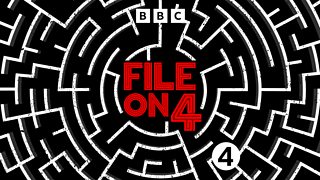What to do if you think you've been scammed
Anyone who's been unlucky enough to fall victim to a fraudster talks about that 'heartsink' moment when they first realise what's happened. It's the point at which the bubble bursts, the spell is broken and they have to accept that they may have been tricked into handing over sensitive financial details or even making a direct payment into a criminal's account.
In fact, scams where victims are tricked into directly transferring money to fraudsters are on the rise. It's known as an authorised push payment or APP fraud and new figures from the banking body UK Finance show that there was a 22% rise in the number of people falling for it in the first half of the year.
±«Óãtv Radio 4's Money Box Live has been investigating what you can do to fight back against the fraudsters. But what should you do if the worst happens and you DO fall victim to a scammer? Presenter Felicity Hannah has some valuable advice...

Keep calm and contact your bank
The moment fraud is suspected, it's essential to report it as quickly as possible to the bank, credit card company or any other financial institution where sensitive details or account information may have been compromised.
There is a scam for all of us out there, unfortunately.Ben Donaldson, UK Finance
That is key to limiting the fraudster's ability to steal even more money or to carry out future attacks. It's also really important that embarrassment doesn't stop victims involving their bank in what's happened.
Ben Donaldson, Managing Director of Economic Crime at UK Finance, says: “Many victims feel embarrassed and sometimes just shamed that this has happened. They really shouldn't. This can happen to anybody, there is a scam for all of us out there, unfortunately. It's such prolific crime and it's sophisticated criminal methodology so people really shouldn't feel embarrassed or ashamed.
“They should contact their bank straight away.”
By reporting fraud to their banks, victims can also increase their chances of having some or all of the stolen funds reimbursed. The latest data from UK Finance shows that in the first half of this year, 69% of APP losses were reimbursed to customers by their banks, which have signed up to a voluntary code. That's a 10% increase on the previous year.
However, a bank can't consider whether or not to repay a victim if they are not aware the fraud has taken place.
Escalate if needed
A significant number of fraud losses may be reimbursed but not all, especially if the bank feels that the victim did not take steps to sufficiently safeguard themselves.
However, if someone feels that their bank has not dealt appropriately with their loss then they can escalate their complaint to the Financial Ombudsman Service.
Kathryn Westmore, Senior Research Fellow at the Centre for Financial Crime and Security at the Royal United Services Institute (RUSI) think tank, says: “If you’re not happy with the bank's initial response you can complain directly to the bank and they should get back to you about your complaint and investigate it within 15 days.
“If they don't or you're still not happy then you can take it to the Financial Ombudsman Service who will investigate the circumstances of the fraud and decide whether to uphold your complaint or not. When it comes to these APP-type frauds, the Financial Ombudsman generally uphold just over 50% of frauds so if you have been defrauded and you’re not getting any success from your bank, it's definitely worth escalating it.”
Report it
The crime you have experienced might be a smaller part of a much bigger and more sophisticated crime ring and that is why taking the time to report it to Action Fraud is important.
Action Fraud is the UK's national reporting centre for fraud and cybercrime in England, Wales and Northern Ireland, and you can file a report online or by ringing 0300 123 2040 (Monday to Friday 8am to 8pm). They will share the details with the National Fraud Intelligence Bureau (NFIB), which is part of the City of London police, and it may contribute to building a wider case.
The crime you've experienced might be part of a much bigger crime ring.
Even if it doesn't, it means there's a record of that fraud, which contributes to the police's understanding of the size of the problem. Fraud is a very under-reported crime so being counted matters.
In Scotland it's best to report fraud to Police Scotland, which asks that all reports of fraud and any other financial crime should be reported via 101 without delay.
Get some emotional support if you need it
Some people will be scammed, feel annoyed and move on. However, for others, it can have a significant emotional impact, especially if they have experienced romance fraud or some other intricate deception.
Ben Donaldson says: “In addition to the financial losses, these crimes often involve callous manipulation of the victim which can cause psychological and emotional harm.”
If it would be helpful to talk through the situation, the charity Victim Support is available on 0808 16 89 111 and its line is open 24/7. You can also visit ±«Óãtv Action Line.
Victims can do that even if they have chosen to not report the crime to the police.
Watch out for recovery fraud scams
Unfair as it may seem, experiencing fraud can actually leave people at risk of even more fraud. Criminals have contact information, plus knowledge of an existing crime, and can use that to attack a victim a second time by posing as police, a bank or other agency.
Stay cautious, even once the fraud is over.
Action Fraud warns that they may ask the victim to pay a fee to help recover the money they lost. Alternatively, they might ask for sensitive bank details, claiming this is to allow them to repay the stolen money – but then use that information for theft.
So stay cautious, even once the fraud is over.
Avoid being scammed in the first place
This may be easier said than done but taking the time to think about the risk of fraud and learn to spot the red flags can make a huge difference to the likelihood of being taken in.
UK Finance has its 'Take five to stop fraud' campaign, which says:
• Stop – take the time to think before parting with money or information.
• Challenge – it's okay to be cautious and reject a request if there are any concerns. Remember that only criminals try to rush or panic people into acting before they’ve had a chance to check.
• Finally, Protect – by contacting your bank immediately if you think you've been scammed.
The ±«Óãtv has lots of guidance on protecting yourself against fraud available online now.
Money Box Live: Fighting Back Against Fraud is available to listen to on ±«Óãtv Sounds.
The information contained in this article was correct at the time of broadcast on 25 October, 2023.
-
![]()
Be Scam Safe
Online tools from the ±«Óãtv to help identify scams and avoid the financial and emotional damage caused by fraud.
More from ±«Óãtv Radio 4
-
![]()
File on 4: Subscription Scams
The growth of scams where customers sign up to costly schemes which are made deliberately difficult to cancel.
-
![]()
Eight things you need to know about student loans and finances
Tips on how to budget, pay bills and manage your uni finances.
-
![]()
Cost of living: Who's thriving and who's just surviving?
How householders and small businesses have been impacted by the crisis.
-
![]()
How much money do you need to be happy?
Adam Shaw explores the ins and outs of money’s relationship to wellbeing.






